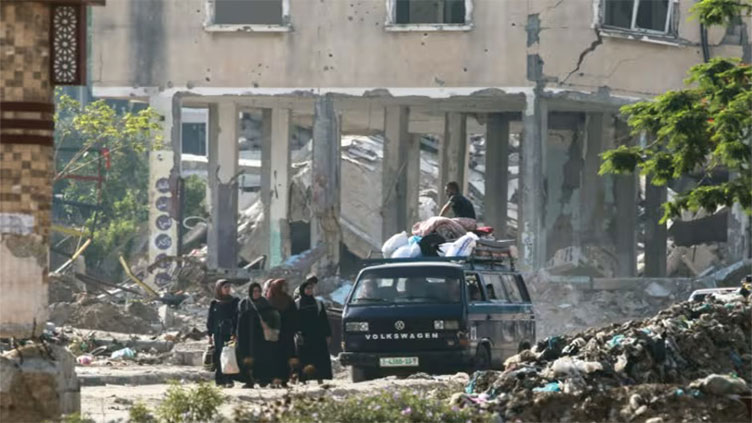Gaza at risk of diseases this summer from piled-up waste, NGO warns

World
Amount of solid waste all over the strip causes multiple hygiene and sanitation problems.
MADRID (Reuters) - The Gaza Strip faces unprecedented disease outbreaks this summer caused by piles of uncollected waste rotting in the heat, fuelling further misery for residents already suffering from food shortages, according to Action Against Hunger.
Fenia Diamanti, project coordinator of emergencies at the non-governmental organisation, told Reuters that managing rubbish is one of its main concerns since it can't be removed from the war-torn territory and inhabitants do not have access to dumps.
"This amount of solid waste all over the strip causes multiple hygiene and sanitation problems," Diamanti told Reuters.
"We fear diseases that never appeared in the strip before are going to appear and that will affect the entire population, especially in the summer when temperatures are going to rise."
Israel has laid waste to much of the Gaza Strip after a Hamas attack on Oct 7 killed some 1,200 people and gunmen abducted about another 250, according to Israeli tallies.
More than 36,500 Palestinians have been killed in Israel's retaliatory offensive, according to Gaza health officials.
Last month was the warmest May ever globally, marking the 12th consecutive month of record average temperatures, the European Commission-backed weather monitoring service Copernicus said on Tuesday.
Last summer, a heatwave in Gaza sent temperatures soaring to 38 degrees Celsius, causing 12-hour power cuts.
Action Against Hunger also helps distribute drinking water to communal kitchens and individuals, as well as handing out nutritional supplements to children and vulnerable people in the territory, a narrow strip of land squeezed between Egypt and Israel.
Before the war, the malnutrition rate in Gaza was just 0.8 per cent, but the situation has changed radically, and although there's no resources to compile the data needed to determine if there's a famine, there are people already dying of diseases linked to malnutrition, Diamanti said.
"We were forced to start making interventions to prevent and treat malnutrition, focusing mainly on children under five, and pregnant and breastfeeding women," she said.


